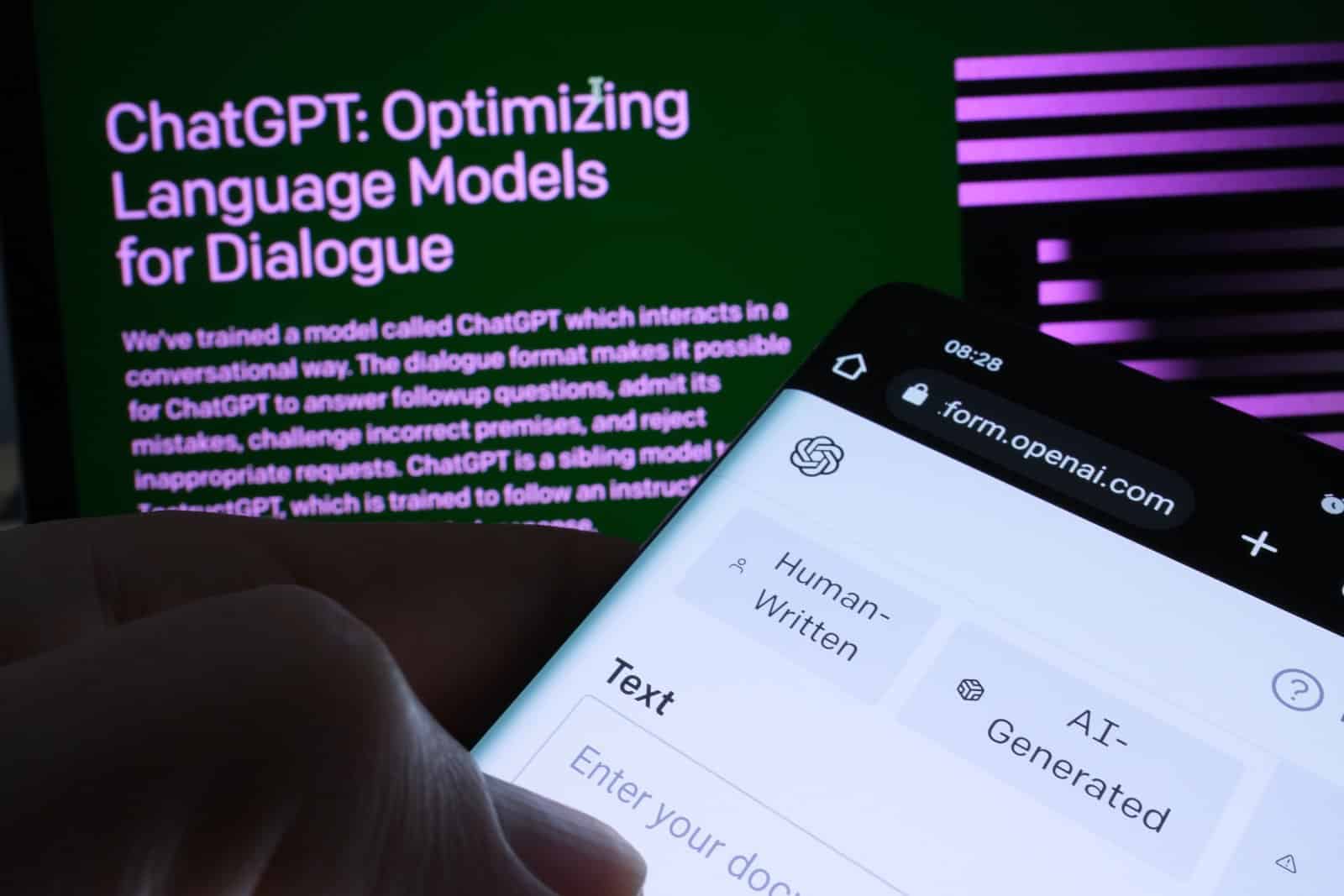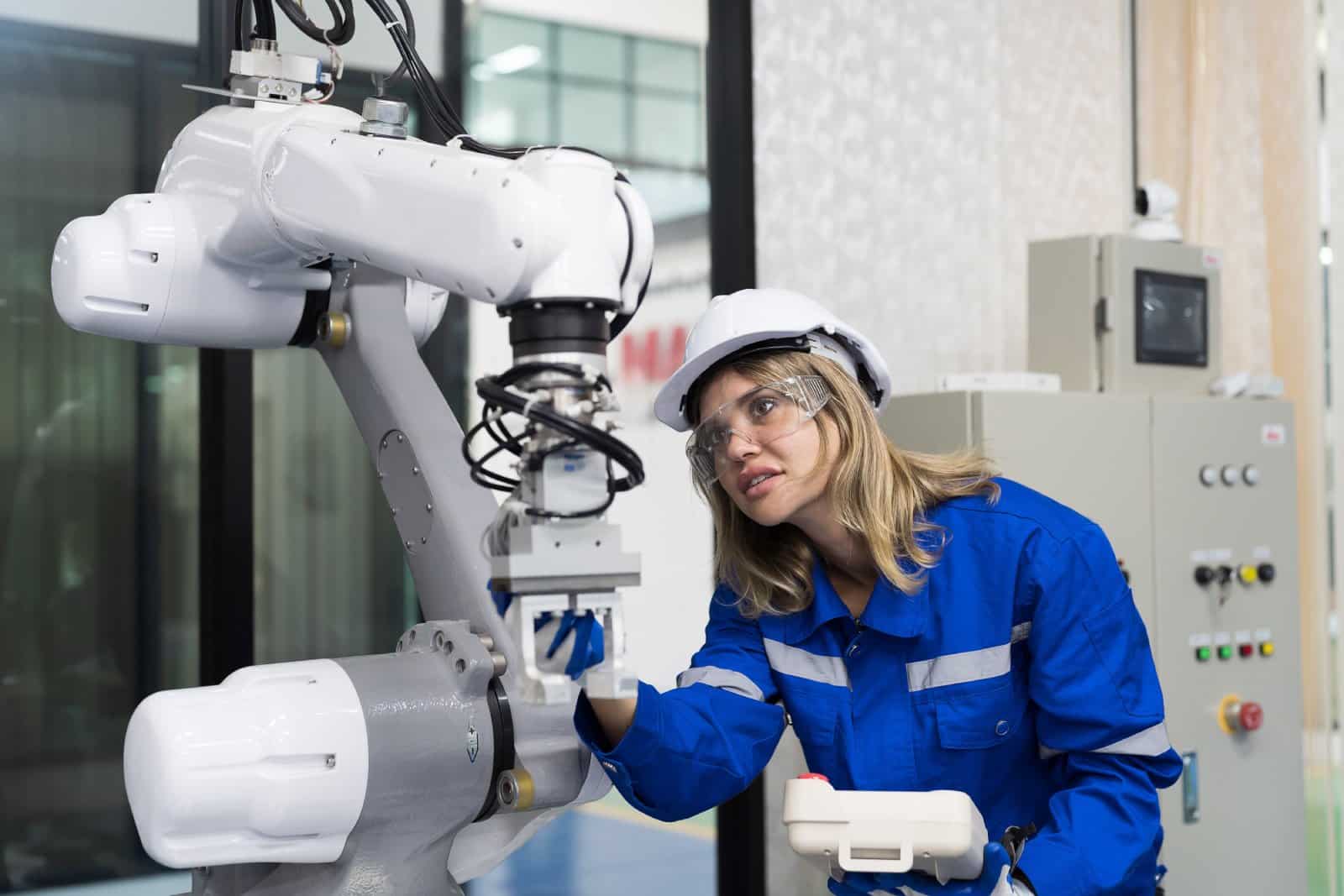AI is becoming more widely used than ever. Could artificial intelligence do your job?
Concerns About Artificial Intelligence

As AI programs like ChatGPT grow, more workers worry about whether they are replaceable by a machine.
According to AI experts, some jobs are at higher risk than others, and the type of work you do determines how worried you should be about losing your job to a bot.
Jobs in Technology

Over the past decade, tech jobs have been in high demand. These careers are highly demanding and require niche expertise, and people pursue higher education to learn things like coding, web design, and app development.
AI’s Efficiency

AI programs, however, may be able to do a lot of this work themselves as they get more sophisticated. These computer programs can work extremely efficiently, and while their accuracy is hit or miss, they get better every day.
Jobs in Writing

Writers spend a lot of time on their craft, researching their work and putting thought and care into their content. Today, it’s easy to tell the difference between content produced by an AI and something written by a human.
How Writers Are Preparing

However, as technology evolves and AI starts to learn nuance, writing jobs could be at risk.
Some writers are preparing by familiarizing themselves with AI’s shortcomings so they can advertise corrections as a service, embracing the fact that AI is not going away anytime soon.
Jobs in Legal Assisting

Legal assistants who primarily read, analyze, and simplify the information presented to them could potentially be made redundant.
AI bots have shown that they are exceptionally skilled in summarizing and creating the kinds of projects that legal assistants typically produce.
AI’s Legal Abilities

AI bots need very specific instructions to get it right but can do a bulk of the technical aspects of legal work.
Jobs in Research

Researchers who perform surveys and polls to gather information from large groups of people are typically very skilled at processing large amounts of information and analyzing it for trends. Unfortunately for them, AI is good at that, too.
AI’s Predictions

Once AI programs have the information they need, they’re good at churning out data based on what they were fed. This makes them good at predicting trends.
Jobs in Tutoring

While schoolteachers and professors will never be replaceable, there is a chance that AI could replace other types of educators.
Tutors, for example, often provide digestible bits of information designed to make sense to a specific audience.
AI’s Cost-Effectiveness

AI can do that, too, at a much lower cost than traditional tutors. Experts recommend leaning in and using AI to enhance your workflow while emphasizing what sets you apart from the computer.
Job’s in Art

Artists who work on commission could be in trouble as AI becomes more accessible to wider audiences. Until recently, if you lacked artistic talent but wanted a specific piece of artwork made, you could commission a digital artist to do it for you.
AI’s Creativity

AI programs are increasingly capable of producing artwork, making people less inclined to pay an artist for their desired work.
There are definite gaps in AI’s abilities – it’s still struggling to create realistic hands in its renderings of humans – but the programs will only get more sophisticated.
Jobs in Mathematics

Mathematicians (including accountants) may find themselves in less demand than they used to be because, when adequately trained, AI can produce accurate math results.
AI’s Ease With Numbers

As its abilities improve, it will be able to take over tasks like completing complicated tax returns that people currently pay CPAs for.
Jobs in Customer Service

Customer service representatives have already been replaced in many ways with AI. Customer service chatbots are becoming the norm for large companies that need to be able to provide service to a high volume of customers.
AI’s Learning Abilities

It’s not far-fetched to assume that AI will eventually be able to provide voice support as well, giving clients a complete customer service experience without needing to involve a human employee.
Jobs in Telemarketing

If you own a cell phone, you’ve probably received spam calls from bots trying to sell you something or convince you to support a political campaign. In the past, calls like that were from actual humans.
AI’s Technological Advancements

Telemarketers may be in a dying profession as AI learns to deliver sales pitches, make phone calls, and record responses on its own.
AI Unlikely to Completely Replace Humans at Work

Many jobs could face changes as AI advances, but it’s unlikely ever to be able to reproduce the touch of humanity that having a live team brings to a project.
There’s a risk that AI will take over some jobs because companies will want to save money, but at the end of the day, humans are irreplaceable, and good employers know that.
The post The Jobs Most at Risk of AI and Automation first appeared on Liberty & Wealth.
Featured Image Credit: Shutterstock / QualityHD.
The content of this article is for informational purposes only and does not constitute or replace professional financial advice.

